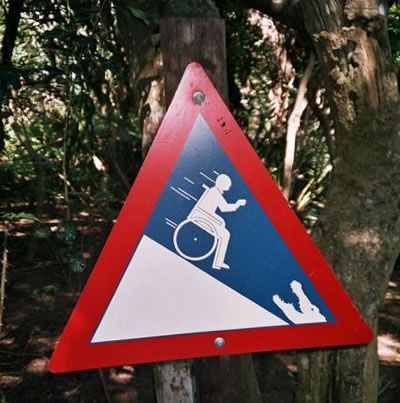What Does the Bible Really Say About Healing?
It might not be what you think!

“Can I pray for your legs?”
That’s a phrase I hear a lot and wish I didn’t hear it quite so often.
I always say no!
That might seem a little rude, but I have my reasons (aside from being regularly and rudely accosted this way).
People see my wheelchair and therefore my obvious disability.
An assumption is then made.
Well, actually two assumptions.
The first one is that my legs are the problem when, to be truthful, they are just one issue in a long list of symptoms from 3 disabling ‘conditions’.
The second one is that my disabilities are such a tragedy they must pray for a fix immediately! Some ask permission, some don’t and most assume.
The truth is, if they named the part of my body that hurt the most that day I would say yes. Why? Because that would show the the Holy Spirit was at work and not an assumption. It would also show this wasn’t all about ‘cure at all costs’ but asking for God’s grace as I dealt with pain and asking for some relief.
If they asked to pray for my ministry I’d be all there – I never turn that sort of prayer down!
A friend of mine has been told she is worshipping her disability. She’s not – she is learning about a wonderful God who is working in and through her as she sits with her disabilities.
I could tell you so many other stories like that.
There are many people who insist healing is the way to go and are rude, cruel and judgemental in how they put their thoughts across. Some even complain to pastors about the ‘non healed people’ in their congregation. Some write to the organisations that we, the ‘non-healed’ work with or alongside, saying we shouldn’t be used in ministry because: disability.
But the fact is; we ARE healed. We just haven’t been cured.
When I talk to God about healing, he graciously responds that I am healed. He also tells me that His strength and grace show up more because of my disabilities.
For many people, this desire for those with disabilities and additional needs being healed comes from a place of love and wanting to help. For some others it comes firstly from a place of judgement; it’s due to unforgiven sin, an intergenerational curse, or you don’t have enough faith. There’s a few more, but that will do for now!
Secondly, it comes from a cursory glance at what the Bible appears to say about healing, rather than digging deep into the theology.
There are a lot of bible verses ripped out of context. There’s also the wrong assumption that because Jesus healed lots of people – we shouldn’t have disabled people in the church and it’s all the fault of the disabled people when we’re there….unhealed.
I’ve been studying Bartimaeus and his healing ready for some teaching on this subject, and it’s been interesting on many levels.
Take a look at the stories in both Mark and Luke’s Gospels.
It teaches us a lot as we ponder some points and ask ourselves some questions:
Was Jesus testing Bartimaeus's faith by asking ‘what do you want me to do?’ (as I’ve heard some teach) Or did Bartimaeus know who Jesus was – the messiah – because he addressed him as 'Jesus son of David'.
If you look at Luke’s version (Where the blind man is not named), the crowd says ‘Jesus of Nazareth’ is passing by, and we are also told the blind man refers to Jesus as ‘Son of David’, not Jesus of Nazareth. Looking at these details gives us a hint that this blind man knew exactly who Jesus was and showed he was extremely well taught by his family.
Those surrounding him would have seen Bartimaeus’s blindness as the result of sin, and therefore seen him as undeserving of speaking to Jesus, so they were telling him to be quiet. But, Bartimaeus kept shouting, still showing his faith.
Jesus then stopped, and told them to call to him. This is interesting because Jesus could have gone to Bartimaeus himself, but He asked those who were hushing Bartimaeus to call him. Look closer and notice how the tone and language of the crowd towards Bartimaeus changed – positive, almost to the point of being patronising.
What do you make of that?
Is this story purely about healing? Or is there more to learn?
So many people with disabilities and additional needs, children and grown ups, are often pushed away from meeting God because assumptions are made.
Maybe we shouldn’t be asking about healing, but rather introducing them to Jesus. And if they already know and follow Him – mentoring them, allowing them to serve and then working alongside them to make our churches a place where they and others can belong.
And by ‘they’, a phrase I use just as shorthand, I include myself. We are part of you – the family of God.









